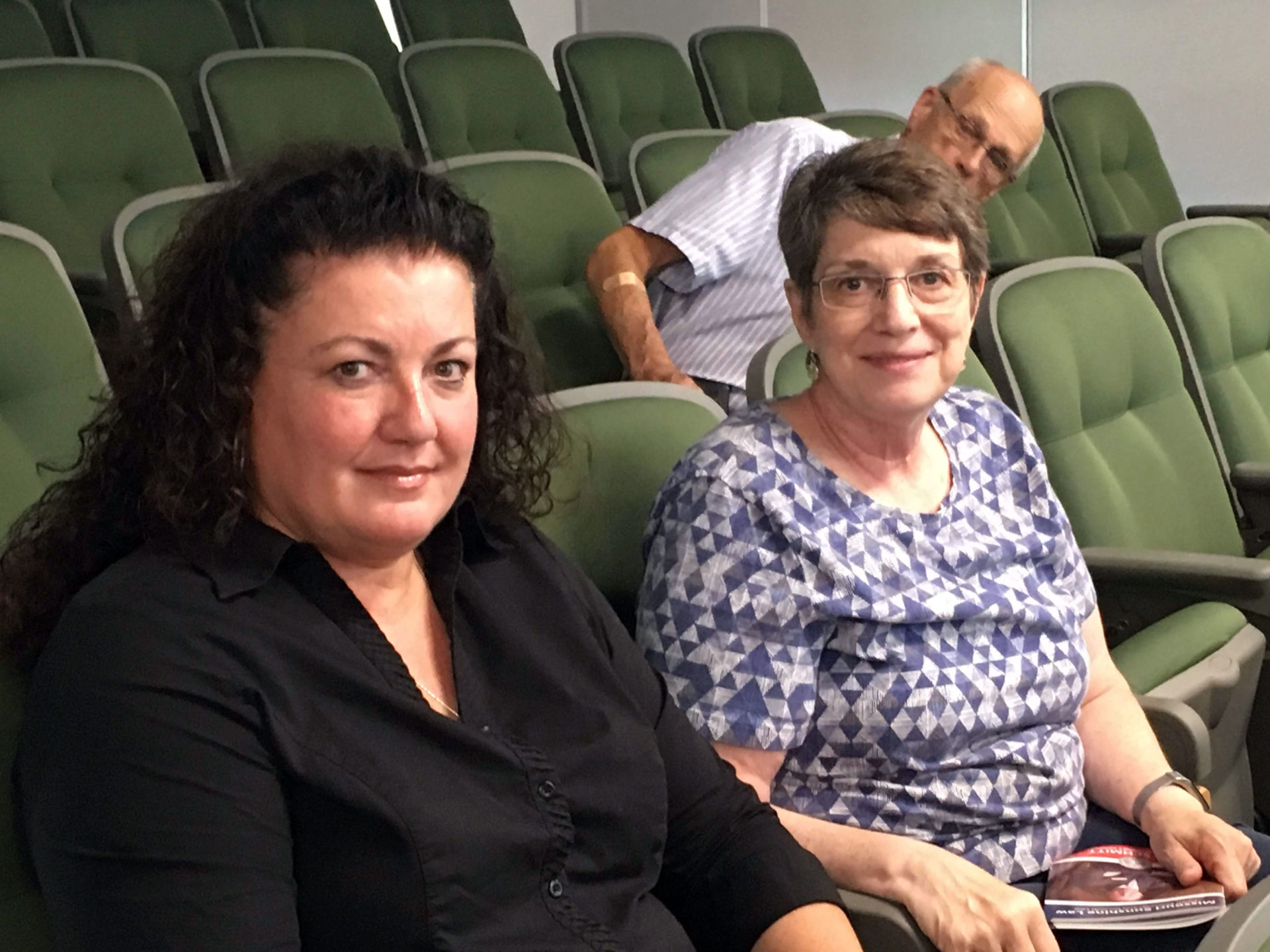
Skidmore aldermen Sandy Wright and Rana Killingsworth, along with Northwest Missouri Area Agency on Aging Board Member David Smith, attended the Sunshine Law presentation on July 26 held at the Hughes Fieldhouse on the Northwest campus.
By Kathryn Rice
Casey Lawrence, director of Sunshine Law compliance with the Missouri Attorney General’s office, presented information, July 30, on the law to members of area city councils, boards of education, taxing entities and other government groups which operate from tax funds.
Organized by Northwest Missouri State University Police Lieutenant Amanda Cullin, the two seminars were held at the Hughes Fieldhouse on campus.
Lawrence went over aspects of meetings and what is considered open and closed meetings and records. The law allows for closed meetings from the public’s view within narrow parameters. It applies to all records including communications, regardless of the form, whether written, email, text and other electronic formats, and to all of the group’s meetings, regardless of the form.
Of specific importance to Lawrence was the agenda for the meeting. It must be posted 24 hours before the meeting and must be posted in a place which is accessible to the public after the public building is closed. More than one copy of the agenda can be and should be posted.
The agenda needs to include name and address of the meeting site, the custodian of records’ contact information, a brief description of the audio or video recording policy and specific statute of why and the meeting will be closed if that is necessary.
Closing a meeting should be done rarely, noted Lawrence. When taking the roll call vote to go in closed session, the entire identifiable reason and statute should be stated. While in closed session, the only topics of conversation should be the identifiable reason stated. No other topics should be broached or discussed. All votes taken in closed session should be a roll call vote.
Lawrence is also a proponent of roll call votes on all motions.
Meeting minutes must have listed the members attending and absent. Draft minutes are considered to be public record and need to be made available to the public, long before official approval of the minutes is made by the governing group.
Lawrence told attendees to err on the side of caution during their meetings. Actions taken at meetings can’t be undone and could open up the entity to violations of the Sunshine Law. She also said the attorney general’s office is currently pursuing legal charges in five to six cases of possible Sunshine Law violations.




Facebook Comments